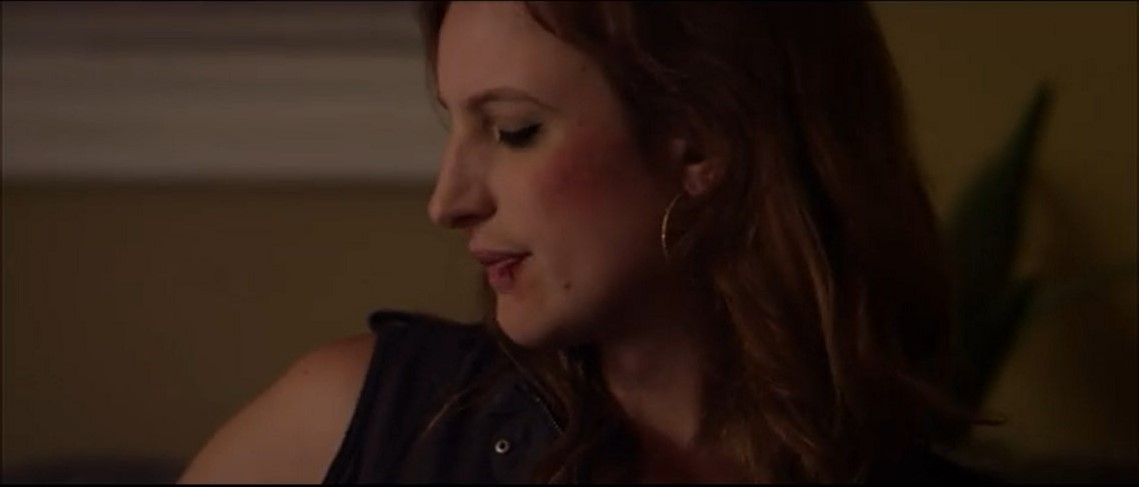A Room Not of Her Own: Explorations of Personal Space in Her Story
Skip other details (including permanent urls, DOI, citation information)
: This work is licensed under a Creative Commons Attribution 3.0 License. Please contact [email protected] to use this work in a way not covered by the license.
For more information, read Michigan Publishing's access and usage policy.
Virginia Woolf argued that a room of one’s own and a steady economic income are crucial to women’s suffrage. Like any contribution to feminism, Woolf’s semi-autobiographical novella, A Room of One’s Own (1929) should be re-examined as civilization develops. The new media series, Her Story (2015- ) critiques Woolf’s contention that the main things needed are a personal room and a reliable income when it comes to trans women in the 21st century.
Woolf’s novella follows the narration of a nameless woman seeking to learn about a woman’s relationship to writing by studying women writers, and what is written about women. She is bombarded by a social setting that polices women’s actions and stunts women’s intellectual growth, resulting in her realization of the need for personal space.
Her Story differs in narrative greatly from A Room of One’s Own. Her Story follows multiple characters. The main storyline follows a trans woman named Violet (Jen Richards) and a journalist named Allie (Laura Zak), who is learning about Violet’s life as a trans woman for a news article.
There are two storylines that examine trans women’s hardships in obtaining a living wage. This includes the main storyline, in which the audience discovers Violet’s struggle to live on her own, and a subplot where Paige (Anjelica Ross), a lawyer, is working on a case for a trans woman who was rejected by a homeless women’s shelter. Viewers learn that not only is it difficult to attain the space Virginia Woolf said is needed for women, but that personal space does little to solve the greater social problem with which trans women are confronted. There is a lack of compassion and respect for trans women in all social settings. It is hard to obtain a good income in a hostile social space.
While watching Violet’s story, we learn that her room is not really hers. Violet lives in an apartment funded by an abusive partner. Violet previously was an escort, but finds a legal means of survival, and moves with a frequent client named Mark (Josh Wingate) to L.A. In L.A., she takes up a job as a waitress, which does not provide enough income for her to survive on her own. Since Violet must rely on Mark to provide for her, Mark has power over her, exercising this through isolating Violet.
Mark’s isolation of Violet is shown when he does not want her to talk to others about being trans, nor does he want Violet to spend time with friends, getting upset when he sees Violet with Allie. Violet also must live with physical abuse; Mark assaults Violet when he is angry. To make ends meet and have a room, Violet either has to work illegally as a prostitute, or accept the toxic help of a person like Mark. By choosing the legal path, Violet has a room that is not really her own and is dominated whenever Mark is home. Violet’s room is effectively a prison cell.
Even without the problem of Mark, the lack of a welcoming social space reveals a problem for trans women that Woolf’s room does not solve. Humans are social beings and need social spaces to express thoughts and feelings, receive validation, and ultimately be recognized as humans. Early in the first episode of the series, we see Violet alone at her apartment, performing internet searches for men interested in trans women. The audience can see the search results scroll across the screen. There are various transphobic comments that dehumanize and fetishize trans women. Even in a room of her own, Violet is interested in the social space, and ultimately hurt by the lack of recognition there of her as a person. She is seen as a sex object that is fetishized and considered shameful.
Another storyline depicts Paige giving legal counsel to a trans woman, Joanna (Mari Walker), denied a place to stay in a homeless shelter for women. When Paige suggests taking the case to the courts rather than accepting the shelter’s apology, Joanna is at first reluctant, discussing the difficulty in getting to L.A., having taken two busses to reach it, and addressing the harassment she received as she travelled. The woman does not have a home, and is left to grapple with the abusive social space.
This storyline reflects the experiences of the many trans people that are left homeless, and without a room of their own.[1] The subplot also highlights the need for a secure social setting where trans people are welcomed. Having a room of one’s own, while providing needed personal space, does not solve the issue of a hostile social setting. Given the lack of compassion for trans people in both narratives, Woolf’s main necessities for women are harder to obtain for trans women. A room of one’s own is needed, but it does not fix the social setting, and may not be a possibility without a support structure for trans women.
Author Biography:
Eager to understand the media and their relationship to the surrounding world, Ryan Freels studies film, television, and animation within sociocultural contexts. He holds a Master of Arts in Communication with a specialization in Media Studies.
See, e.g., Criniti, S. and Green E.R. (2016). Understanding transgender identities and experiences. Contemporary study of sexuality & communication: Theoretical and applied perspectives. P. 125-142 IA: Kendall Hunt; Grant, J., Mottet, L., Tanis, J., Harrison, J., Herman, J., & Kiesling, M. (2011). Injustice at every turn: A report of the National Transgender Discrimination Survey. Retrieved from http://endtransdiscrimination.org/PDFs/NTDS_Report.pdf; Make the Road New York. (2010). Transgender need not apply: A report on gender identity job discrimination. Retrieved from http://www.maketheroad.org/pix_reports/TransNeedNotApplyReport_05.10.pdf.






